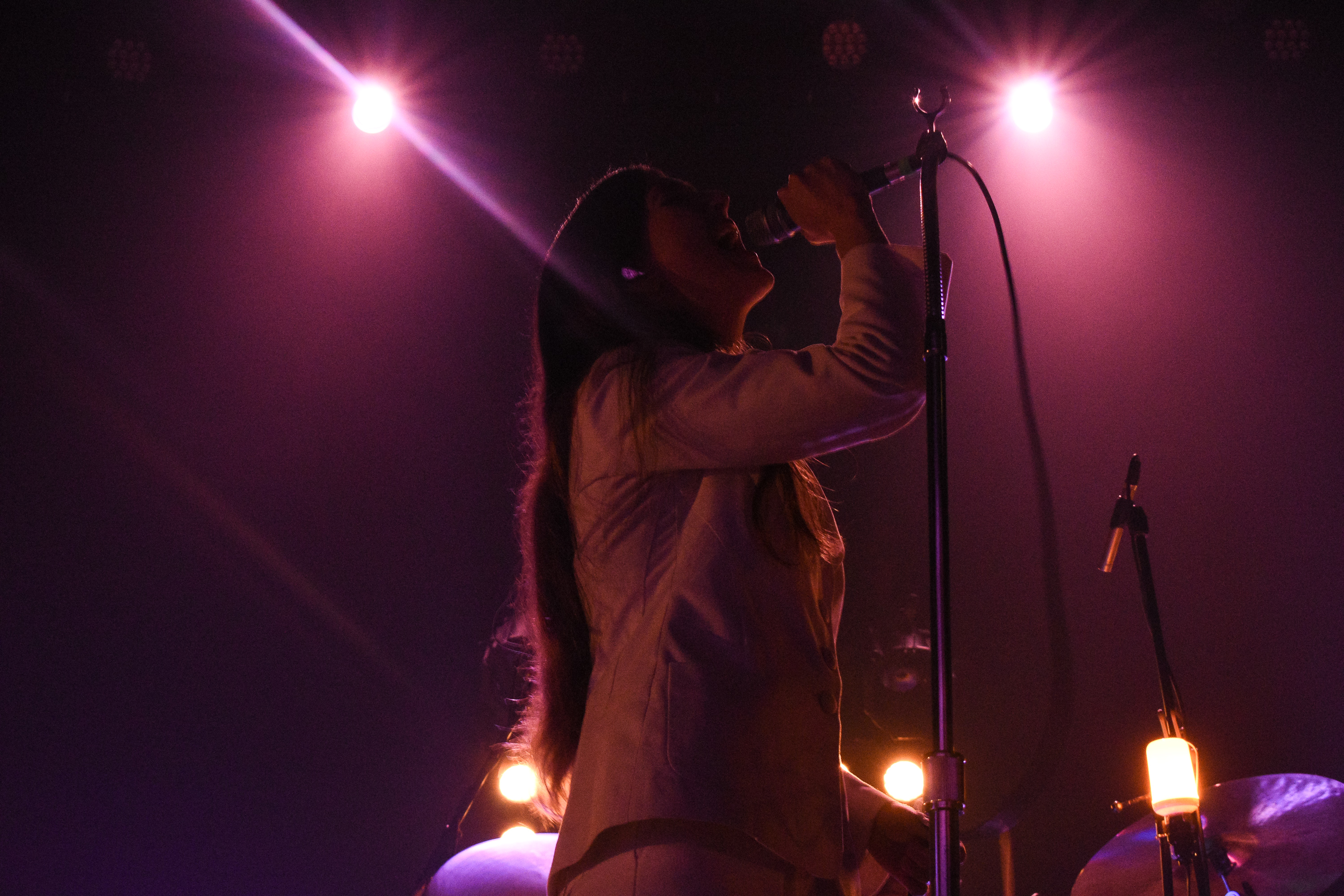Los Angeles pop songstress brings “Something to Believe” tour to Pop Montreal
Sept. 27 was a big day for Montreal. In the afternoon, nearly 500,000 protestors poured into the streets to march to demand climate justice. As the crowds dissipated and night fell, the Pop Montreal festival continued in full swing, with singer-songwriter Weyes Blood headlining at Rialto Theatre.
The audience trickled into the historic Rialto as the first opener, Markus Floats, started to play at 8 p.m. The Montreal local performed a short set of electroacoustic mixes that spanned from calming and transcendent to otherworldly and unsettling.
After a quick tech change, Helena Deland took the stage. Her set started somberly, as was to be expected from her stripped-back pop style. Deland remained alone on the stage until she was joined by her bassist halfway through her set, when she played two of her biggest songs, “There Are a Thousand” and “Claudion.”
Despite the fact that these songs are some of her most upbeat tracks to date (with “Claudion” being rather dancible in that mellow sort of indie way), Deland forewent any chance to bring the energy up. This was a missed opportunity. “Claudion” especially felt like it was missing some of the energy that the recorded version contained. Later, she decided to close her set off with some of her darker tracks. Though Deland’s musical talent is hard to deny, the fact that her set peaked in the middle ended up making the performance feel unsatisfying.
The moment Weyes Blood took the stage, it was obvious that this show was going to be something special. She had a small band accompanying her, but as she came out in a head-to-toe white powersuit, there was no denying she was the star.
She started out playing songs from her newest album, Titanic Rising, which has been receiving critical acclaim since its release this past spring. After a few songs, she took a moment to pose a question to the crowd. She explained that since this show was on the “Something to Believe” tour, she wanted to know what her audiences believed.
So, in a very matter of fact way she asked, “Was the moon landing filmed by Stanley Kubrick?” Most of the crowd just laughed, but a few hands shot up. She responded by saying, “In Vancouver, everyone raised their damn hand.” Then, she jumped into “Something to Believe”.
By far the most visceral performance of the entire show was the final pre-encore song “Movies.” The song started out with her gloomy voice laid over simple synth arpeggios. As she stood at the front of the stage, her body was flooded with lights that made it seem like you were looking down at her as she sank underwater, echoing the album cover of track. In that moment, the room felt spiritual. Weyes Blood, drenched in light, with her angelic voice, seemed like a sort of collective vision of the audience.
After leaving the stage to immense applause and cheering, Weyes Blood and her band returned to the stage to play three final songs, including a cover of the 1967 psychedelic song “A Whiter Shade of Pale.” She finished the show off with an old fan favourite, “In The Beginning.”
Not many artists have both the incredibly strong voice and stage presence of Weyes Blood. Her ability to belt out her baroque pop tunes evoke icons like Kate Bush and Fiona Apple, and there is no doubt that Weyes Blood is on her way to icon status.
Feature photo by Cecilia Piga
